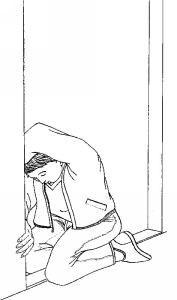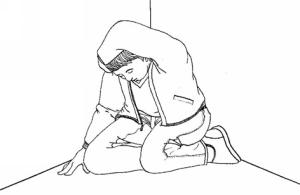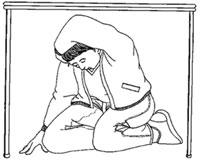There is seldom advance warning of an earthquake. Therefore, it is important to take safety measures ahead of time and to learn how to respond. If needed SMS warning text messages are sent to mobiles phones after earthquakes from the Civil Protection to the affected area
Security measures
- Secure cabinets, shelves and heavy objects to the floor or wall.
- Do not keep heavy objects on top of shelves or on walls.
- Secure heating equipment and radiators. Know where the water main and electric circuit breaker are.
- Secure picture frames and wall light fixtures with closed-loop hangers. Put security latches/child safety latches on cabinet doors.
- Prevent objects from falling on beds.
- Make sure that ceiling panels and raised floors are properly fastened. Cover windows to prevent flying glass in case they are broken. Do not place beds under windows if there is a danger of an earthquake.
- Announcements from the Civil Protection will be made on the State Radio in case of a natural disaster.
Preventive response
It is good to memorize the words DUCK, COVER, HOLD to remember how to react in the event of an earthquake. Those who are indoors when a large earthquake occurs should especially avoid:
- Furniture that may move.
- Objects that may fall from shelves and cabinets (especially in kitchens).
- Radiators that may move.
- Broken glass.
- Falling building parts.
Guard against falling objects by:
Ducking in an open doorway, covering the head (with one hand) and holding onto the doorway,

Ducking in the corner of a supporting wall, covering the head and holding on, if possible,

Ducking under a table, covering the head and holding onto a table leg.

Do not run aimlessly inside or run outside in panic
Those who are outside should:
- Find an open space and avoid buildings and electric poles. Keep a safe distance from man-made structures that are as tall or taller than you.
- Duck and cover head (at least with hands) if you cannot get to an open space.
- Avoid falling rocks and gravel slides in mountainous areas.
- Those who are driving should stop their vehicles in a safe place.
After an earthquake, one should:
- Wear shoes (if debris is on the floor).
- Obtain a first aid kit if needed.
- See if anyone is hurt, and if so, call the Emergency Line at 112. If it is not possible to get help by telephone, mark the place of the accident with a flag.
- Turn off the water and heat if a leak is unmanageable, and shut down the main electrical circuit if the building is damaged.
- See if there is a fire and do not use an open flame if there is danger of a fire starting.
- Leave calmly if you think the building is uninhabitable after an earthquake. Many accidents occur when people run out through debris after an earthquake.
- Dress appropriately for the weather conditions (see directions on evacuation) if you leave the building. Remember that the automobile is often the first heated shelter available and it has a radio.
- Remember the emergency shelters in schools run by the Red Cross.
- Listen after announcements from the Civil Protection that are sent to the State Radio see further information in General Instruction and General precautions).
- Never touch damaged electric poles.
- Be prepared for aftershocks.
Information from the Icelandic Meteorological Office:
Seismic activity in Iceland